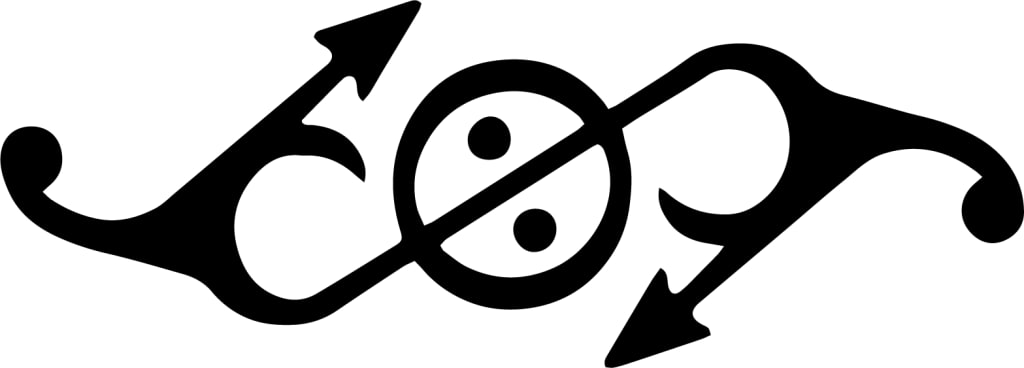Be a Tiger, not a Sheep
Critically Examining Online Writing Advice Part 1

Anyone who’s spent much time within the writing community on social media or on AuthorTube, (which for those of you unaware, as I was 2 years ago, is the term for the section of YouTube where authors discuss their opinions on writing, review books by other authors, etc.) has likely encountered a slew of writing advice from all manner of authors.
These authors or soon-to-be authors might have 50 publications spanning decades, or they might be still hacking away at their debut. Let me be clear: neither of those distinctions makes someone more or less worthy to give writing advice. I’ve heard spectacular advice from people who’ve never published a single piece, and terrible advice from far more experienced authors.
That’s not the point of this article. The point is to address how this advice is given, the elements it may contain, and why you, whatever your proficiency with the written word, should take all writing advice with a mountain of salt.
Disclaimer: I am not claiming to be the ultimate authority on writing or writing advice. But I am an authority. In the past 30 years, I’ve written many novels, some to critical acclaim, as well as poetry, songs, screenplays, novellas, novelettes, peer-reviewed articles published in respected scientific journals, and am an award-winning nursing researcher. I have a new novel and my first novelette coming out later this summer, and I will happily state that there are many ways to write, and write beautifully, far beyond my own. That’s sort of the point.
There is not ONE way to write successfully.
Some of the more experienced authors I’ve seen (almost always male and white, like me) seem to be convinced that their way is the only way to write, and that’s easy enough to ignore. The internet is a thing, and there are a lot of opinions out there. (If anyone ever tells you that you have to write the way they do, no exceptions, run.)
What troubles me is a trend I’ve noticed on AuthorTube, where a group highly-followed content creators have all apparently agreed on several “rules” for how to write successfully and “professionally”.
On the surface, this isn’t a big deal.
It becomes a bigger deal to me when I hear terms bandied about like “if you use {enter part of speech/punctuation here}, your work will immediately be seen as amateurish, so it should be avoided at all costs”. And it’s not just one part of speech that’s being vilified. In some cases, it’s a LOT. (There are no evil parts of speech, they just have to be implemented properly for what you're trying to achieve).
It’s a problem, because a lot of these authors have hundreds of thousands, if not millions, of followers absorbing this information, and possibly putting it all into practice, including through the aid of various, (and often expensive) editing programs that make implementing these very specific alterations to your work possible with just a few clicks.
These editing programs are not inherently evil or anything, they're tools. In some cases, they're valuable tools that save us all a lot of time. But implemented in this way, they can potentially cause a lot of damage to your manuscript, and your voice, very quickly.
My problem isn’t with these AuthorTubers specifically, individually, or personally. I subscribe to many of them, and I mostly enjoy their content. Some give fantastic advice (which some don’t necessarily follow in their own work).
But as someone with a deeply established style, I know the bits to shrug off and the bits I find really interesting and worthy of exploration. Differing opinions aren’t inherently a bad thing by any stretch of the imagination, and as I stated previously, there’s no one way to write successfully, or beautifully.
But if you’re new to the craft, and you’re looking for advice as to how to shape your own stylistic choices, listening to the same advice repeatedly about the “correct” structure of sentences, parts of speech to always avoid, and programs to help you achieve these goals easily, you’re going to end up sounding eerily similar to the authors providing this advice.
That’s bad for you, and that’s ultimately bad for them, because one of the most prized elements of any writer’s style is a distinctive voice. It’s hard to find one if you’re mirroring your choices off of someone else’s.
To be fair, I also have an AuthorTube channel. Currently, I have 4 videos on it, all from last year. And the reason I stopped (beyond there being a pandemic, and all the complications that caused for millions of people, myself included) was because I didn’t think the writing community needed one more author telling you how to write.
That wasn’t the goal, so much as telling you how I write, which is in some way markedly different from how other authors approach the craft. I’ve since found what I want to discuss specifically, and I believe, uniquely, and I’ll be re-launching my channel later this month with a completely different mission firmly in mind.
There is absolutely nothing wrong with listening to other authors talk about their writing process and stylistic choice. But if you’re new, or if you’re uncertain of your own style, please have faith in yourself and your own artistic vision. No one is going to be able to give you a template for how to write just like them because you aren’t them.
If the advice feels right for you, go for it! But mirroring someone else’s approach, no matter how successful it’s made them, is only ever going to make your work sound like a clone of theirs, which is honestly missing the point of creative self-expression entirely.
You by no means have to agree with me, many of you probably won’t, but healthy skepticism is something I believe all writers, and authors, need to have in the back of our minds. It’s imperative that you trust yourself.
Yes, it might take you a minute to develop your own creative voice, but there are no rules for what and how you can or can’t write. And using adverbs or semi-colons in fiction, for example, doesn’t make you sound like an amateur. If everyone else is avoiding these sorts of things like the plague, your usage just might make you sound more unique, which is the goal.
In Part 2, I’ll discuss the writing advice trend of people trying, for some ungodly reason, to turn every novel, no matter the genre, into a screenplay. (And not on purpose).
About the Creator
Nicholas McIntire
Nicholas McIntire has been writing fantasy his entire life. His debut novel, The Hunter's Gambit (Book 1 of the Archanium Codex) was released in 2019 to critical acclaim, and Book 2, A Wicked Wind, is coming September 20, 2021!






Comments
There are no comments for this story
Be the first to respond and start the conversation.